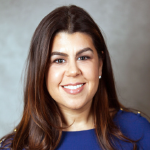From the founder of FemInEM, FIX 2017 gathered women and men to share ideas and support.
Explore This Issue
ACEP Now: Vol 37 – No 01 – January 2018When Dara Kass, MD, decided to expand her popular FemInEM online community beyond the digital world, she drew on the best parts of all the conferences she has attended in her career. The result—FIX 2017—brought together 250 participants for three days of inspiring lectures, networking events, and workshops centered on the challenges women in emergency medicine face.

Dara Kass
Recently, Dr. Kass, who is a clinical associate professor of emergency medicine at New York University School of Medicine in New York City, sat down with ACEP Now Medical Editor in Chief Kevin Klauer, DO, EJD, FACEP, to talk about the accomplishments of FIX 2017 and plans for this year’s encore conference. Here are some highlights from their conversation.
KK: I am excited to talk to you about FemInEM’s first national conference: FIX 2017. Tell us what’s happening with the organization and where this title of “FIX 2017” came from.
DK: FemInEM itself has grown exponentially but, more importantly, deliberately over the past two years. We have expanded our website and added our speakers bureau, job boards, and sponsor content. We’ve seen an increase in the submissions across the board from men and women, physicians of all stripes and all ages. We’ve seen a natural increase in the variety of content we have published, and the frequency of submission has been pretty amazing. Our Twitter and Facebook profiles have grown.
About a year ago, I was at a conference and thought, “If I could use these gifts of better presentation style and design, better speaking skills, better opportunities to understand how to interact with the media, and women in medicine, we could really make a huge difference.” So I took all of the best conferences I’d ever been to and tried to include pieces of those conference to create what I thought would be, what I hoped would be, a women’s development conference that was really a physician development conference geared around the topics of gender equity and inclusion in emergency medicine. We built a curriculum that we thought would reflect the needs of the population, and we asked others to just believe in us. We opened it up to 250 people and said, “Here’s a conference. It’s new. It’s in New York. It’s exciting.” We had one workshop day at the end; we tried to hammer home some of the tools we had inspired people to develop in the first couple days, and we sold out. It was amazing.
Pages: 1 2 3 4 | Single Page





2 Responses to “FIX 2017 Conference Seeks to Improve Gender Equity in the Field of Emergency Medicine”
January 28, 2018
Larry CohenI find in general, women physicians do make less then men. However, I haven’t seen any gender bias causing it. What I have seen is that some women are not as “fast” as some men, which, decreases their salary. Where I work, and other than the USAF, my other position over the last 26 years in practice is the women have less overall productivity. I have only worked in private groups, and we have been, for the most part fee RVU based compensation. Now with that, there are some women that beat the heck out of a lot of men in this way. And actually, the only complaints about salary where I work (100,000+/yr) are from some of the men, that are very “slow” and feel productivity is wrong and everyone should get an equal share…and every participant should get a trophy
February 4, 2018
concerned male future EM physicianI am unsure if it is possible to “see bias” as most bias tends to be implicit and thus largely invisible. Secondly, are there any studies showing that women are “not as fast as men?” I would presume not. If anything, with the younger generation being naturally more adept at EMR, I would guess that the new generation of female physicians would be faster than the older men of the past generation. Additionally, without providing evidence to support your claims, I think your comment contradicts itself, as you appear to have implicit stereotypes about female physicians which leads to wage gaps between genders. I believe the purpose of such conferences is not to incite a gender or generational war, but rather to help us identify the biases that we have, and in turn create a more equitable workplace.